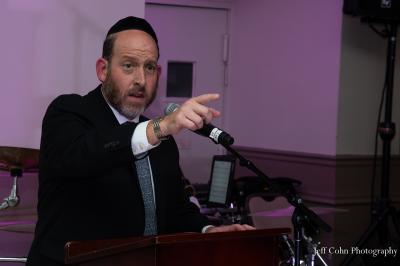If there is one prayer that resonates in the heart of every Jew, it is Kol Nidrei. The very tune is haunting yet enchanting, saddening yet uplifting. Yet, when one looks at the words – they seem to be anything but inspirational. Kol Nidrei is a form of Hataras Nedorim, revocation of vows. We begin the holiest day of the year by releasing ourselves from the vows of the past and proactively annulling the vows of the future. On a legal level this is very important as violating one’s vow is considered a severe transgression. We do whatever we can to repent and absolve ourselves of sin as we enter this sacred day. And still, we find ourselves confounded by a basic question: Of all the beautiful prayers we have in our liturgy, why begin the holiest day of the year with revocation of vows? There are many prayers with moving words, prayers that capture the true essence of Yom Kippur, prayers that speak to the theme of purity and repentance. Wouldn’t it be more appropriate to use some of these prayers as the liturgical introduction to this holy day? Why do we begin with Kol Nidrei? What is the message?
Perhaps, to answer this question we must strive to understand the purpose and power of a neder (vow). The paradigmatic neder is the Nazirite vow. A person takes a vow to abstain from wine and cutting his hair. The Nazir is forgoing certain physical pleasures and choosing to place less emphasis on his “self.” Why would a person do such a thing? The Rabbis explain – because deep down he knows he can be something more, deep down he knows he possesses greatness within but needs the proper framework to extract it. He needs to shift the focus from pleasure seeking to purpose seeking. Sometimes in life we need a push; we need some level of tension to actualize our potential. This is the neder – the binding promise which creates the framework to allow the individual to access his internal reservoir of potential.
To take this one step further, perhaps, the neder can be viewed as a personal aspiration or dream. I know where I am now, and I know where I need to be; the neder is the vehicle to help me bridge the gap. The neder creates a legal reality in which I must actively work to actualize my dream/aspiration. But there is a danger in dreaming – many dreams fail to materialize, many dreams come crashing down, many dreams end in disappointment. When one experiences too many failed dreams, one loses his resolve and courage to dream any more. It is too hard to leave oneself open to hurt and feelings of failure; better to live without dreams than to dream and fail.
This coming Tuesday night when we enter the hallowed sanctity of Yom Kippur, we reflect on last year and realize that many of the things we wanted to do, we didn’t. Many of the dreams we had remain unrealized or worse, ended in failure. And so, the first thing we do on this sacred day is revocation of vows, Hataras Nedorim – we let go of our failed dreams. We let go of the unrealized dreams of last year. We let go because we will not allow ourselves to be burdened by the yolk of failed dreams. Carrying around these failures can be stifling. We let go in order to dream anew.
This is our mandate over Yom Kippur – dream a new dream! Ask yourself, who do I want to be? What do I want my life to look like? What do I need to accomplish? We unburden ourselves in order to fill our hearts and souls with new, magnificent and holy dreams for the coming year. There is no better, more appropriate way to start this special day than with the recitation of Kol Nidrei.
I hope and pray that we will each find the courage to dream a new dream. Let us hope that God sees the beauty in our dreams and gives us the strength to make them come true.
G’mar Chasima Tova and Good Shabbos














